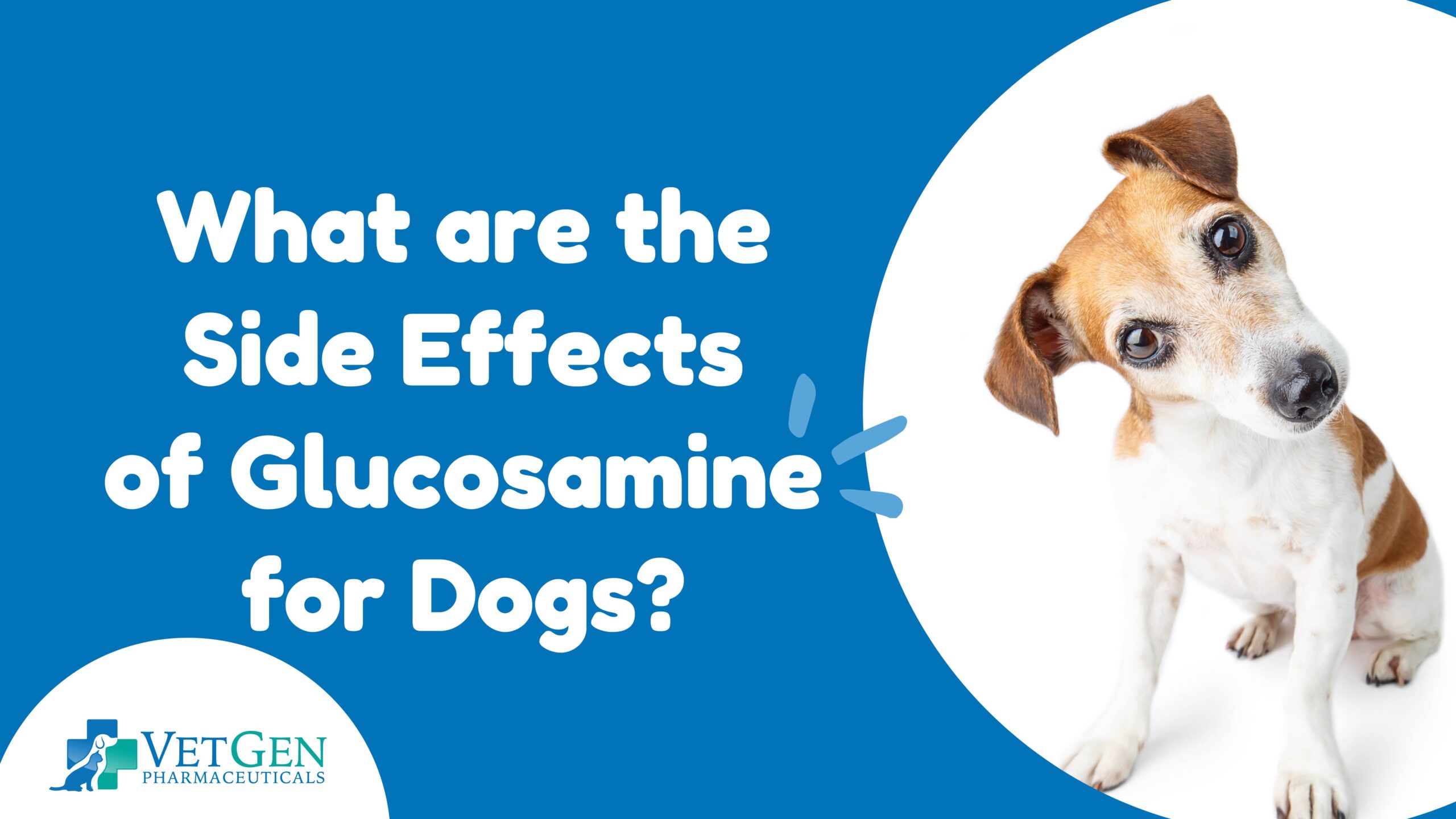Glucosamine is a vitamin that is helpful for keeping your dog’s joints healthy, especially in their old age. The vitamin is used to form developmental cartilage. These tissues help in cushioning body joints. If a dog is old, they may develop problems with their cartilage. That can be painful and prevent the dogs from moving as freely. It is at this point that Glucosamine comes into play. Glucosamine can offset these effects by improving cartilage regeneration and reducing joint discomfort.
Glucosamine helps dogs with better joint movements without any inflammation. If your dog has arthritis, this supplement can help him ease the pain. However, you cannot ignore its side effects. The side effects can range from minor gastrointestinal issues to more serious allergic reactions, especially in dogs with shellfish allergies. We are going to place emphasis in unfolding all these side effects in this blog so that we can make the right decisions for our furry friends!
Common Side Effects Of Glucosamine
It’s important to keep in mind that since most Glucosamine products are derived from shellfish, dogs with seafood allergies may experience an allergic reaction to even a small dose of them. There are very few Glucosamine supplements that do not contain shellfish. Most dogs can handle small doses of Glucosamine without any severe allergic reactions.
While Glucosamine is known for its potential benefits, even a moderate amount of it can cause kidney damage and liver failure in dogs. So, you need to be very careful when giving Glucosamine to your little dog companion.
You can give a small amount of Glucosamine to your dog and look out for any signs of allergy or sensitivity. You need to look for signs like:
- Diarrhea
- Vomiting
- Drowsiness
- Gas
- Reduced appetite
- Constipation
Things To Consider Before Adding Glucosamine Supplements To Your Dog’s Diet
Glucosamine supplements can cause certain reactions in your dog, and you must be careful of this factor before administering the supplements to your dog. Here are some common factors to take into account:
Dosage:
Dosage is perhaps the most important factor to consider before using any substance for your pet. In today’s market Glucosamine is available in practically every product, such as dog chews, supplements, and even senior specific foods for dogs. An overdose is a genuine danger if you are not monitoring the total amounts of Glucosamine you are giving your dog.
The right dosage is usually determined by your dog’s size, age, and individual health needs. Read more on Glucosamine For Dogs – Dosage Recommendations on VetGen Pharmaceuticals.
Quality of the Supplement:
It is important to note here that the Glucosamine supplements vary in quality. You have several choices in the market that may include very inferior products. Concentrated supplements are likely positive and free from potentially toxic compounds that may affect your dog’s health. Look for NASC Quality Seal or Good Manufacturing Practices (GMP) Certification for these supplements.
Best Alternatives of Glucosamine for Dogs
If your dog does not react well to Glucosamine, you can try these alternatives instead:
Omega-3 Fatty Acids
Omega-3 fatty acids are good vitamins for the joints. They help reduce inflammation and irritation in dogs. Omega-3 fatty acids provide good joint lubrication. Additionally, they support healthy skin, kidneys, and heart. Fish and krill oil are the greatest sources of omega-3 fatty acids to give to your dog.
Avocado Soybean Unsaponifiables (ASUs)
ASUs are known to reduce inflammation and promote healing after damage. This helps preserve cartilage. It is worth to note that chondroitin sulfate and Glucosamine hydrochloride work together with ASUs. With all these supplements working together, you have a great solution for your dog’s joint problems.
Cannabidiol
A CBD oil supplement can be beneficial for dogs with severe arthritis. According to some experts, CBD oil works on your dog’s endocannabinoid system to regulate pain and inflammation. You can give your dog 2 mg/kg of cannabidiol twice every day to reduce their joint pain. It is better to use the CBD therapy on older dogs who have joint pain rather than the young ones that already have healthy joints.
Chondroitin Sulfate
Chondroitin sulfate works to keep the cartilage safe. With the exception of dogs with end-stage arthritis, it is advised for all dogs older than eight weeks. However, it can be difficult for a dog’s gastrointestinal tract to adsorb chondroitin, so you should get a product that has a low molecular weight. They work together to give a greater greater effect on the dog’s joints. You need to consult with your vet about the dosage before you give it to your dog.
Green Lipped Mussels
Green-lipped mussels are commonly found in pure waters along the coast of New Zealand. They have naturally occurring Glucosamine, which helps reduce pain and inflammation in dogs.
There are several joint supplements containing Glucosamine. But the problem with those supplements is that they are synthetically made. It is possible that your dog’s body does not recognise this drug and reject it. So, they won’t be able to absorb it properly. On the other hand, if you use green-lipped mussels, they act as a natural source of Glucosamine to improve your dog’s joint health.
Natural Eggshell Membrane
Everyone is aware of the egg’s incredible nutritional value. However, did you know that eggs also include a vital protein that supports joints? Natural Eggshell Membrane is the thin layer of tissue found inside an eggshell. You can even remove the membrane from the shell yourself to offer to your dog. But it takes a lot of work. So, you can choose to purchase NEM® as a supplement in its place.
Conclusion
If your dog has started to limp or needs additional joint support, you may want to look into Glucosamine for dogs. It’s a well-liked option, and the most prevalent dietary supplement in the aisle, but is it the best one for your dog? It has great potential benefits, but you have to be careful about giving the appropriate dosage. Refrain from giving this supplement if they have pre-existing conditions like diabetes.






